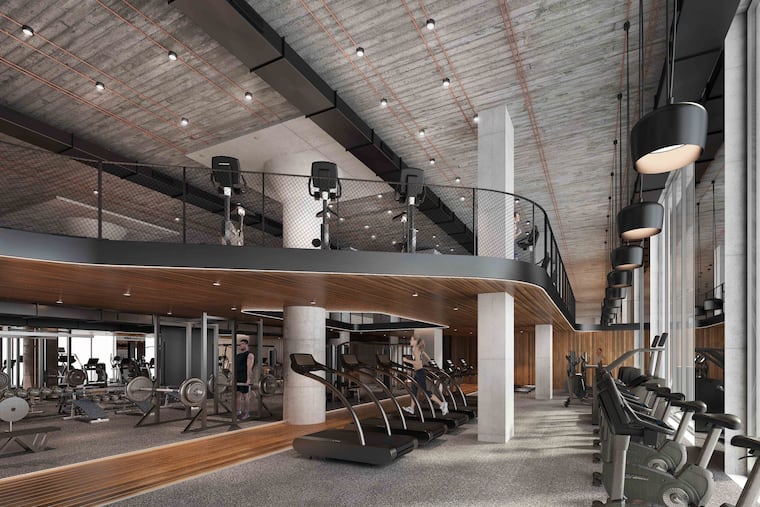What does ‘diversity’ mean for Philly’s hottest new social club? | Opinion
In a recent Inquirer article, the club's founder said he wants the membership to be more like the city — at least 40 percent female and 15 percent diverse. Wait a minute, to what city is he referring?

Fitler Club, modeled after the high-end private-membership-club chain Soho House, is slated to open soon. The goal is to give Philadelphia its own (and definitely overdue) exclusive social club, catering to the city’s business, creative, and social leaders.
I frequent the Soho Houses domestically and abroad, and was originally super excited about Fitler Club’s potential. However, once I began reading articles highlighting some parts of the vision of the club’s founder and CEO, David Gutstadt, my excitement faded.
In a recent Inquirer article, Gutstadt said he wants the membership to be more like the city — at least 40 percent female and 15 percent “diverse.” To what city is he referring?
The last official demographics of the city stated that Philadelphia was 52.8 percent female and 47.2 percent male, 41 percent non-Hispanic white, 43.4 percent non-Hispanic black, and 12.3 percent Hispanic. I’ll concede that those numbers come from the 2010 census, but I doubt they have changed so immensely in the last nine years that the city is now only 15 percent diverse. It made me wonder how Gutstadt defines diversity.
Growing up in West Philly in the ‘90s and early ‘00s; diverse to me meant white. During my formative years, the mayor was black (John F. Street and Michael Nutter), the fire commissioner was black (Lloyd Ayers), the police chief was black (Sylvester M. Johnson), my swim team was black (shout-out to the Serpents of the 52nd Street Y), and it felt as if 90 percent of the people west of the Schuylkill and east of City Avenue and Cobbs Creek were black. My main interactions with “diverse” members of the city came from my middle and high school years at the city’s JR Masterman Laboratory and Demonstration School, and to be honest, my Italian American classmates from South Philly and Irish American classmates from Manayunk and Roxborough were basically black. (What I mean is that their parents had the same civil servant jobs our parents had, they dressed like and used the same slang that we did, and they dealt with the same plights in their neighborhoods that we did.)
Now that I’m an adult, I tell people how, when I was growing up, the television always told me I was a minority, but I had no idea what that actually meant until I found myself in my freshman year of college in Chapel Hill, N.C., where the black population was closer to 12 percent and the campus’ main drag was “Jefferson Davis Highway.”
I can’t say for sure, but I’d bet that my definition of diversity is not the same as Gutstadt’s.
If the Fitler Club hopes to emulate the essence of Soho House, a series of social clubs whose energy and sustainable revenue thrives on diversity — be it race, religion, gender, sexual preference, or chosen profession — it should strive for a membership that accurately reflects the demographics of Philadelphia.
Philadelphia is a city where one in four people lives in poverty, half of those people being black, and the income gap between the wealthiest and poorest is the third highest in the nation. Yet, Fitler Club’s proposed initiation fees are $1,500 to $2,500 with accompanying monthly fees of $250 to $500.
That cost of entry seems like a pretty good way to make sure the club is not reflective of the city. My former law school professor at Harvard, now-U.S. Circuit Judge David Baron, would read this and quickly remind me that correlation does not imply causation, but my childhood friend Muhammad from 49th Street, now a local real estate mogul, would quickly tell me I’d be “drawin’” to not at least bring up the point.
As a lifelong Philadelphian, I do not want to see new Philadelphia millennials, whose parents fled to Bucks, Montgomery and Chester Counties, revel in the city’s gentrified renaissance while the people who had to suffer through the Rizzo years, crack epidemic, and now gentrification — no matter their race — become outsiders looking in. That pertains to every aspect of the city, from who is flipping properties in our neighborhoods to who is able to join the new, hip social club in town.
Kirkland Alexander Lynch is a lawyer, CPA (inactive), consultant, and president and chairman of Kirkland Alexander Enterprises Inc., and business affairs strategist for the Stevie Wonder Organization.